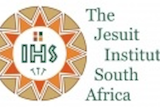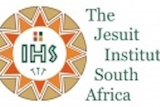South African Reflection: A Time to Come Together

After a hotly contested campaign, after the elections, after the swearing in of councillors and in some cases the tense processes of forming coalitions in some cities, it is now time to come together. It is time to think beyond party ideologies and get on with the job of governance: in short, service delivery and infrastructural maintenance in great metros, small cities and provincial towns and villages of South Africa, must be the focus.
A key aspect of Catholic Social Teaching, mirrored in all great religious ethical systems, and articulated in secular disciplines of political science, is the Common Good. This moral vision that should be translated into action is of promoting the well-being of all people. It is the foundation of democratic politics. And it is not attained by clawing obsessively to one's ideology but by carefully examining situations and asking how the good can be attained, how harm can be avoided.
It is not easy. Political situations defy 'quick-fix' solutions. Political philosophies are often blind to the 'facts'. No-one has all the answers. Dialogue and careful discernment between different 'solutions' (expressed in different ideologies) is essential. Government is the task of all in elected office, not just the winners. All the elected need a voice, all need to contribute.
This is perhaps most obviously the case with local government, which directly affects all the people all the time. Basic things - electricity and water supply, proper sewage and garbage disposal, road maintenance and ensuring public safety - are local issues, even if broad policies are determined regionally and nationally. Council chambers are not the place for peevish politicians to settle grudges, score ideological points off each other, or indulge in rhetorical hot air at the expense of the community.
Nor should it be the case in Parliament, but that's another point for another time.
The irony of this year's local elections is that it was fought over national issues, above all over the popularity of President Jacob Zuma and the current leadership of the ANC. While understandable, this sets a dangerous precedent: it obscured the local issues of service delivery. It is also highlights the potential danger new councils face - getting caught up in ideological battles while our municipalities are left to decline further.
This is nowhere more dangerous in municipalities run by coalitions, often irregular unions of parties, poles apart ideologically. Such ideological division, if allowed to dominate debates in councils, could in fact paralyse local governance. This would be detrimental to what councils are supposed to do, and would reflect the very opposite of the common good.
This is not a good idea, particularly not for the parties. If anything the local elections have shown that a significant number of South Africans are unhappy with corrupt and self-serving leaders and are willing to express this through voting. They will watch closely how parties perform locally in the next five years. It's in all parties' interests to remember that municipal service delivery will be a factor in 2019, including possible State obstruction of councils they dislike.
Follow the Jesuit Institute on twitter @JesuitInstitute





















